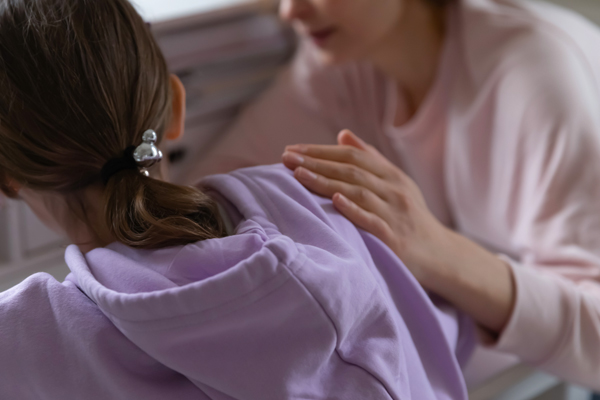Compassionate Interventions for Maui County Keiki
The Friends of the Children’s Justice Center of Maui offers expedited, targeted assistance to children in challenging situations.

Thirty-two years ago, a Maui County judge recognized a tragic gap in the children’s justice system. While the court could prosecute people who abused or neglected kids, it didn’t have the means to help young victims heal. To that end, the Wailuku Rotary Club founded the Friends of the Children’s Justice Center of Maui.
Since 1989, the Friends have offered direct support to around 800 children a year on Maui, Moloka‘i and Lāna‘i. The organization provides a range of services—everything from counseling to clothing to help applying for college. “Whatever they need,” says executive director Paul Tonnesen.
Children are referred to the Friends by their guardian ad litem (court-appointed lawyer or social worker). In one recent case, for example, a guardian noticed that a 13-year-old victim of sexual abuse was also suffering from debilitating dental problems; protruding teeth were cutting her inner lip.
“Most foster children rely on a government health plans that don’t cover braces—but dental care can be a huge thing for a child’s self esteem,” says Tonnesen. “This young lady was having emotional difficulties because she couldn’t smile. She was being bullied at school.” The Friends paid for her to see an orthodontist. “Once she got her braces done, we got a picture of her flashing a big smile. Now she’s in college.”
That’s a major success, considering the grim national statistics. Only 55 percent of foster children finish high school, and fewer than five percent graduate from college.
Compassionate interventions can have a profound effect on these kids’ futures. Children removed from their families tend to have issues with trust, attachment, and anxiety. According to Tonnesen, these are mental issues—not illnesses—and can be addressed with professional therapy. When he saw that children had to wait four to six weeks to see a state-assigned counselor, he contracted an independent therapist and cut the waitlist down to one or two days.
In all, the Friends work with more than 40 local contractors and agencies to provide a seamless, responsive safety net for children in need.
The Friends of the Children’s Justice Center of Maui does not receive government funding, relying instead on donations from individuals, foundations such as the Hawaiʻi Community Foundation (HCF) and even its own board members. Inger Tully, HCF’s Maui County director of community philanthropy, says, “Friends of the Children’s Justice Center is a trusted partner for all of Maui County. It’s an excellent example of how the generosity of individual donors can make a real difference in the lives of Hawaiʻi’s keiki.”
Tonnesen, the Friends’ sole paid staffer, has been recognized for outstanding leadership over the course of his two-decade tenure—12 years as board member and 10 as executive director. His passion springs from his personal experience of overcoming a rough childhood. “I was one of those kids,” he says. “I never thought anyone cared. Having one person invest in me changed my life.”
Did You Know? HCF can work with you to channel your giving for maximum impact. To learn more, contact Inger Tully at itully@hcf-hawaii.org, or visit hawaiicommunityfoundation.org/investing-community-wellbeing.
Read more Stories of Impact